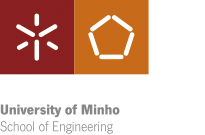Monday, 1/29/2018
International project aims at improving safety of
medical devices such as glucose monitors and hemodialysis equipment, in order
to reduce errors in use.
Currently,
more than ever, health professional staff and patients trust the interaction
between medical devices, such as injection pumps, cardiac monitors or diabetes
devices. “Therefore, it is important that these devices communicate to each
other and run trustworthily”, the researchers referred, speaking to the Portuguese
news agency Lusa.
José
Creissac, professor from the Department of Informatics of the School of
Engineering of the University of Minho (EEUM) and researcher at the High
Assurance Software Laboratory of the EEUM (HASLab/INESC TEC), is one of the two
Portuguese researchers in the team. “The main goal of the ‘Medical Devices
Interoperability’ project is to
transform how medical devices are designed, tested, bought and used, thus
reducing the number of medical errors and, consequently, saving lives”, he
affirms.
The research
is based on a study carried out by the Food and Drug Administration (FDA), the
North American agency responsible for controlling food, drugs and medical
devices, in collaboration with INESC TEC. Using data from 2012 to 2015, the research
concluded that 12% of recall orders of medical devices were due to software
problems, many of which detected through nurse-machine interaction. In 2% of
the cases, those devices could have led the health professional to make a
decision which could potentially endanger the patient’s life, the researchers
added.
One of the
project’s goals is to ensure that device designers and manufacturers produce
and supply information on their performance, functioning and characteristics,
so that users may operate them safely.
The project
will also result in a norm which, after approval, will serve as a guideline for
regulations to be created in the United States and, most likely, in Europe,
Portugal included.
Source: Lusa
+
info: https://www.fda.gov/medicaldevices/scienceandresearch/researchprograms/ucm477390.htm

